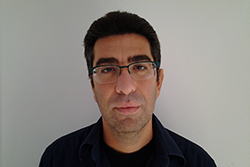By Dr.Filippos Proedrou, Vice President KEDISA
Current global interest is rightly focused on the Syrian-Middle East crisis. The explosive situation there has created different coalitions and axes, which in its turn has both raised the stakes in the region, as well as makes the resolution of the crisis even harder to achieve. At the same time, these factors render termination of the conflict an utmost priority, since it has become the source of instability not only in the Middle East (the rise of the ISIS, the renaissance of the Kurdish militia, the new role Iran aspires to play in the region after the nuclear deal with the international community)[1], but also in Europe where sluggish growth, inefficient intergovernmentalism, poor policy-making and the refugee crisis constitute an explosive mix for the EU. Even if that does not, and it may well not, translate into the end of the EU, the Union has been on the losing side and on the wane for years now; it is essential for the EU to re-baptize itself and regain international respect and prominence if it wants to sustain a future for it in a globalized political and economic environment.[2]
Going from geopolitics to the global economy, the situation appears messy and inherently unpredictable. Signs from China are not encouraging, while the West remains trapped in a vicious self-reinforcing cycle of debt, high unemployment and rising inequalities. Even more importantly, while faith in market capitalism has eroded, it has as of yet not been substituted for by trust in alternative models: the social democratic one remains discarded, and the state capitalistic one (of the Chinese and Russian kind) shows evident signs of slowdown and is nowhere close to serving as a new blueprint. At this state of flux, the future is rather open.[3]
A critical factor in determining the future shape of the global political economy will be the energy-climate nexus. The Paris climate agreement did provide a boost to the battle against climate change. This having been said, though, it leaves the future trajectory and results rather open-ended. Nationally determined contributions are well-positioned to act as catalysts for undertaking sustainable policies, albeit they are not legally-binding. An overhaul of our energy systems is both ecologically desirable and economically beneficial, but requires a new form of state to rise: that of the enabling/ ensuring/ innovative state that will change the incentives-penalties signal system, encourage and subsidize sustainable policies and do away with both unsustainable tactics and anti-climate policies. Low energy prices, especially within the framework of poorly delivering economies, work against such state initiatives. The very real danger exists then that a great opportunity will be lost both for decisively limiting the impact of climate change, with all its economic, political and geopolitical repercussions, and for revamping stagnant western economies.[4]
International cooperation, in the form of tight ecological and financial regulations, functional carbon markets and working dispute settlement mechanisms, is thus badly needed to improve the global lot. At the same time, though, it appears wanting in a global environment that still prioritizes narrow political ends to global public goods.[5]
[1] Carpenter, T. (2013). Tangled web: The Syrian civil war and its implications. Mediterranean Quarterly 24.1, 1-11; Glass, C. (2015). In the Syrian Deadlands. The New York Review of Books, 22 October.
[2] Tsoukalis, L. & Emmanouilidis J. (2011). The Delphic oracle on Europe: is there a future for the European Union?. Oxford University Press.
[3] Kaletsky, A. (2011). Capitalism 4.0: The birth of a new economy in the aftermath of crisis. PublicAffairs.
[4] Giddens, A. (2011). The politics of climate change. Cambridge, UK.
[5] Mazower, M. (2012). Governing the world: the history of an idea, 1815 to the present. Penguin.
 English
English
